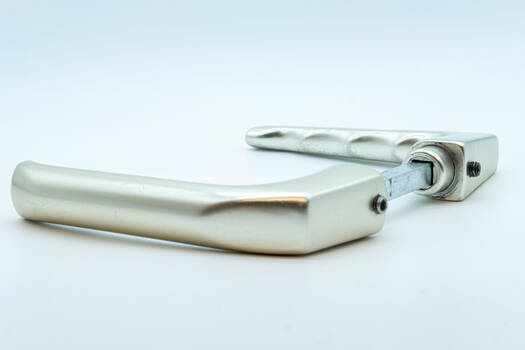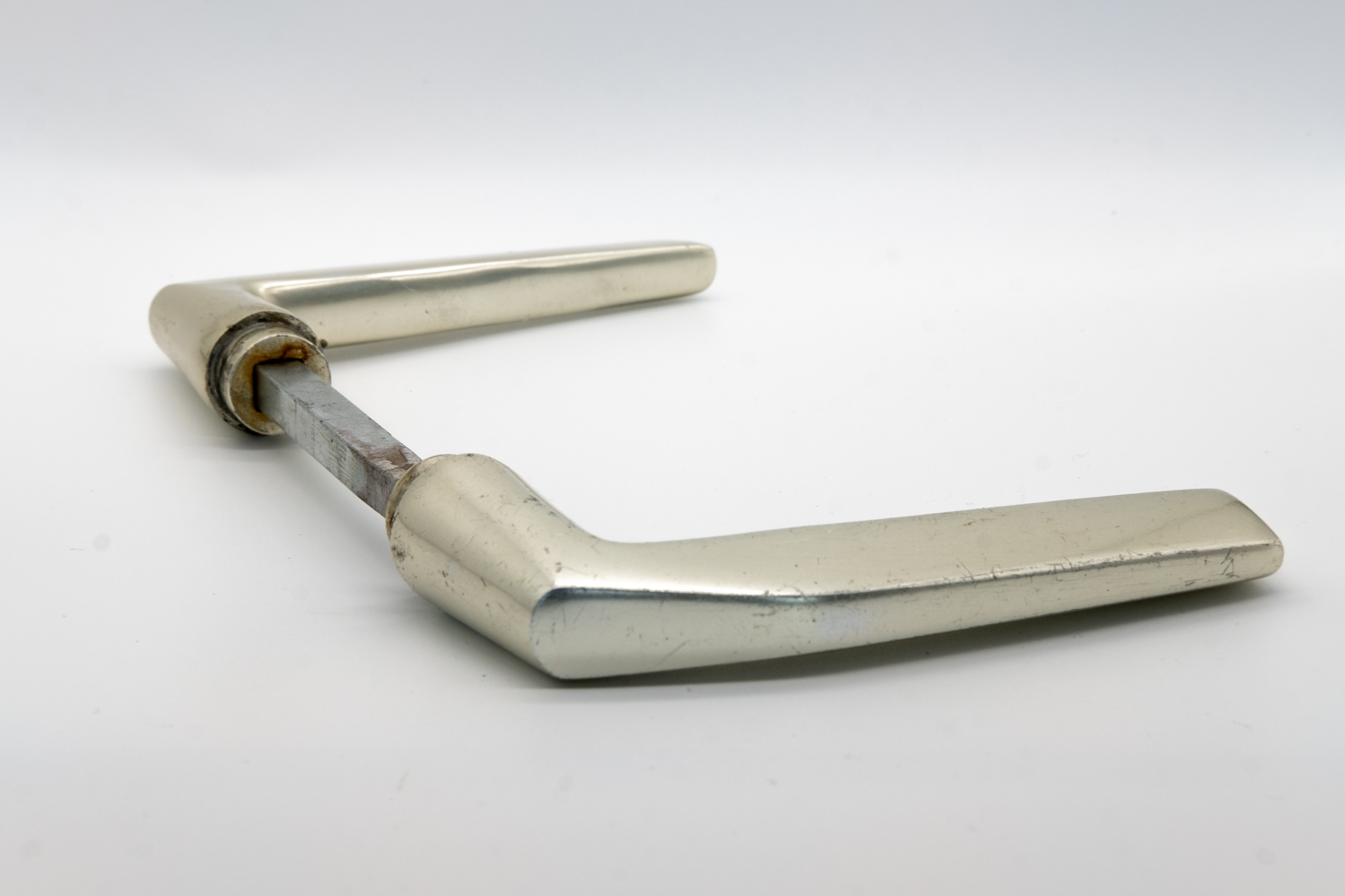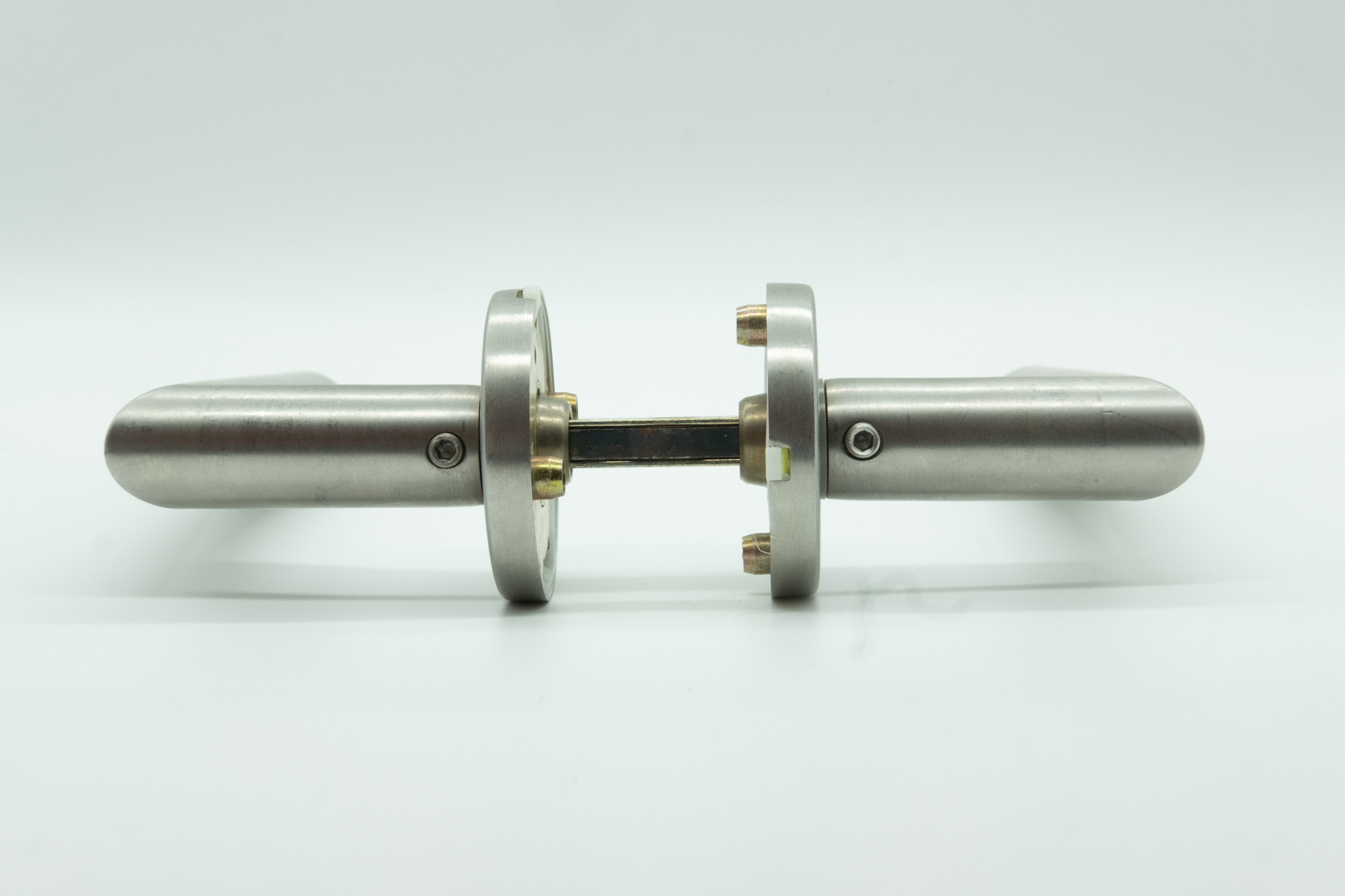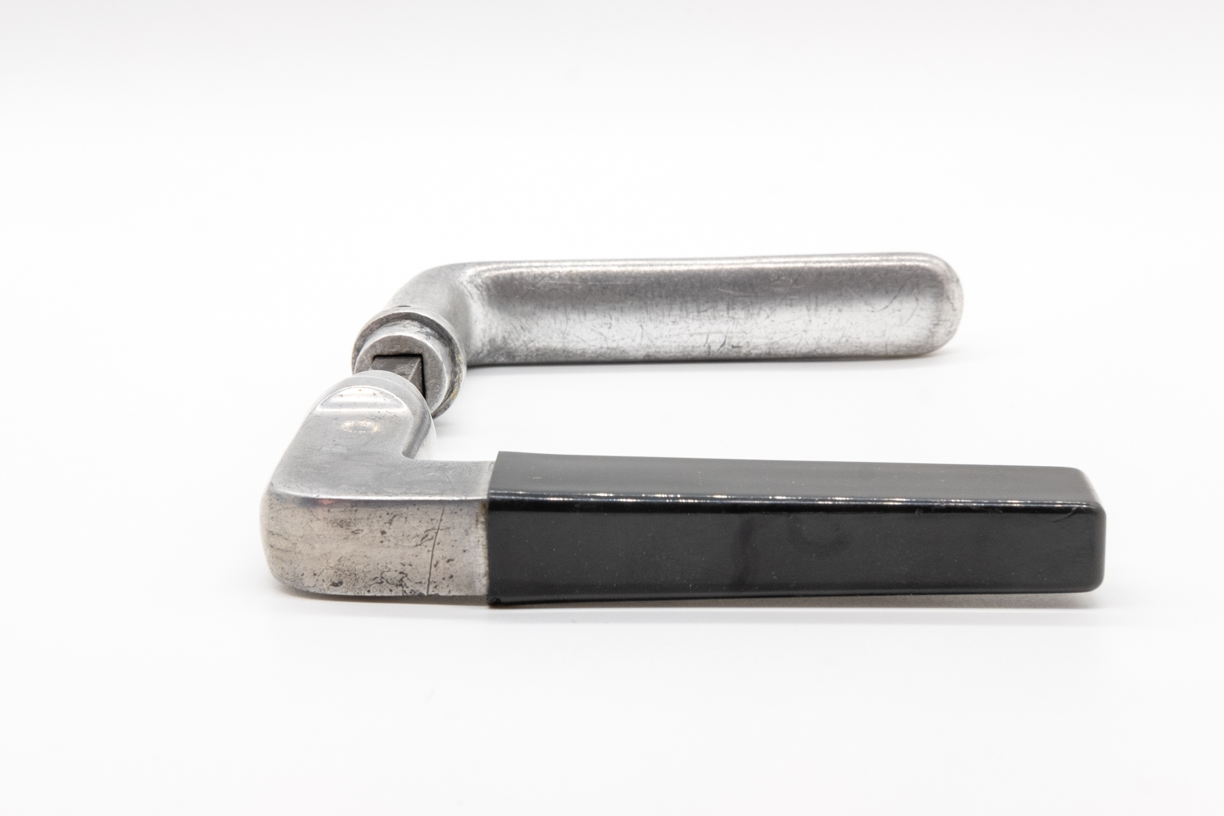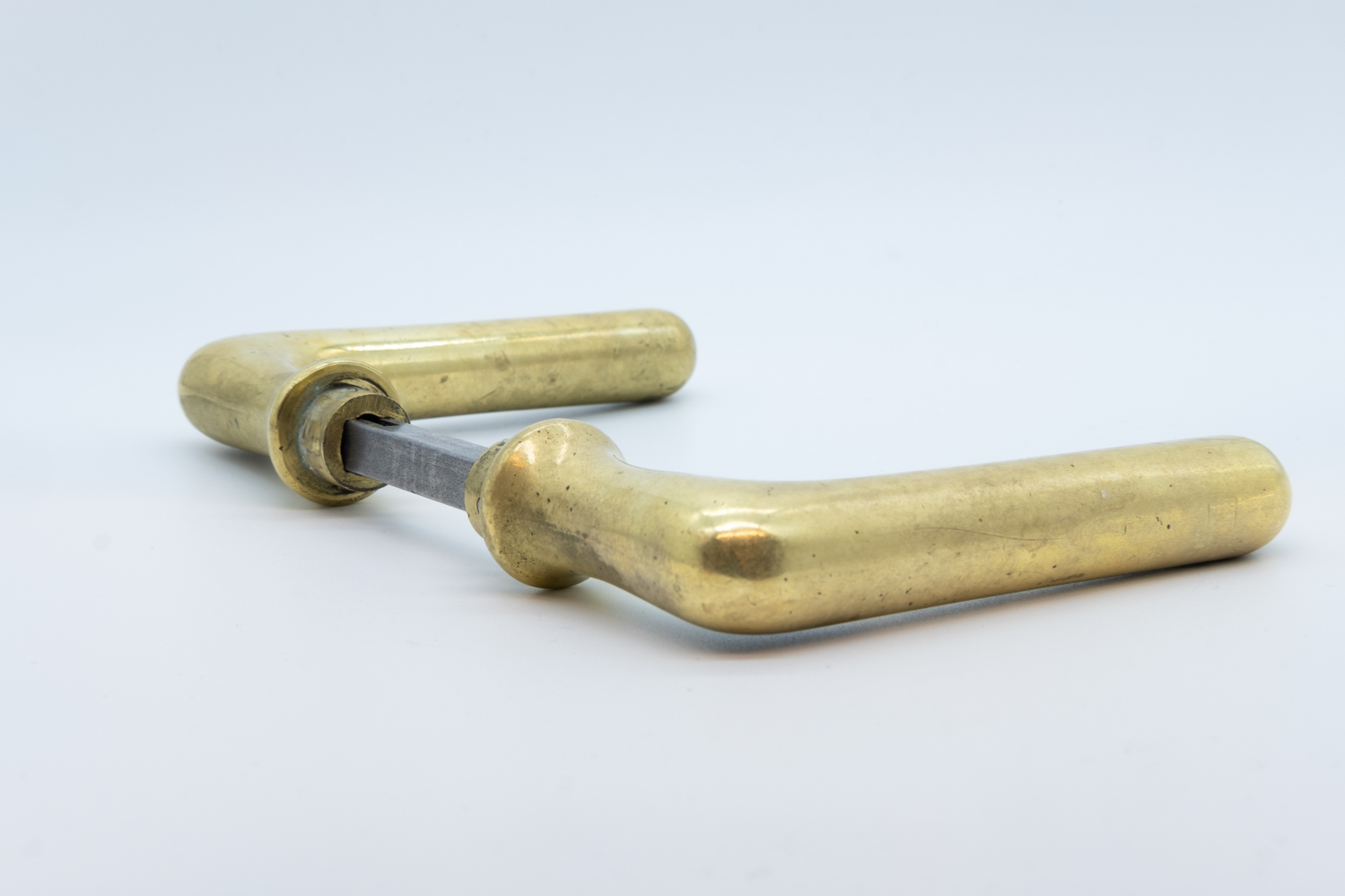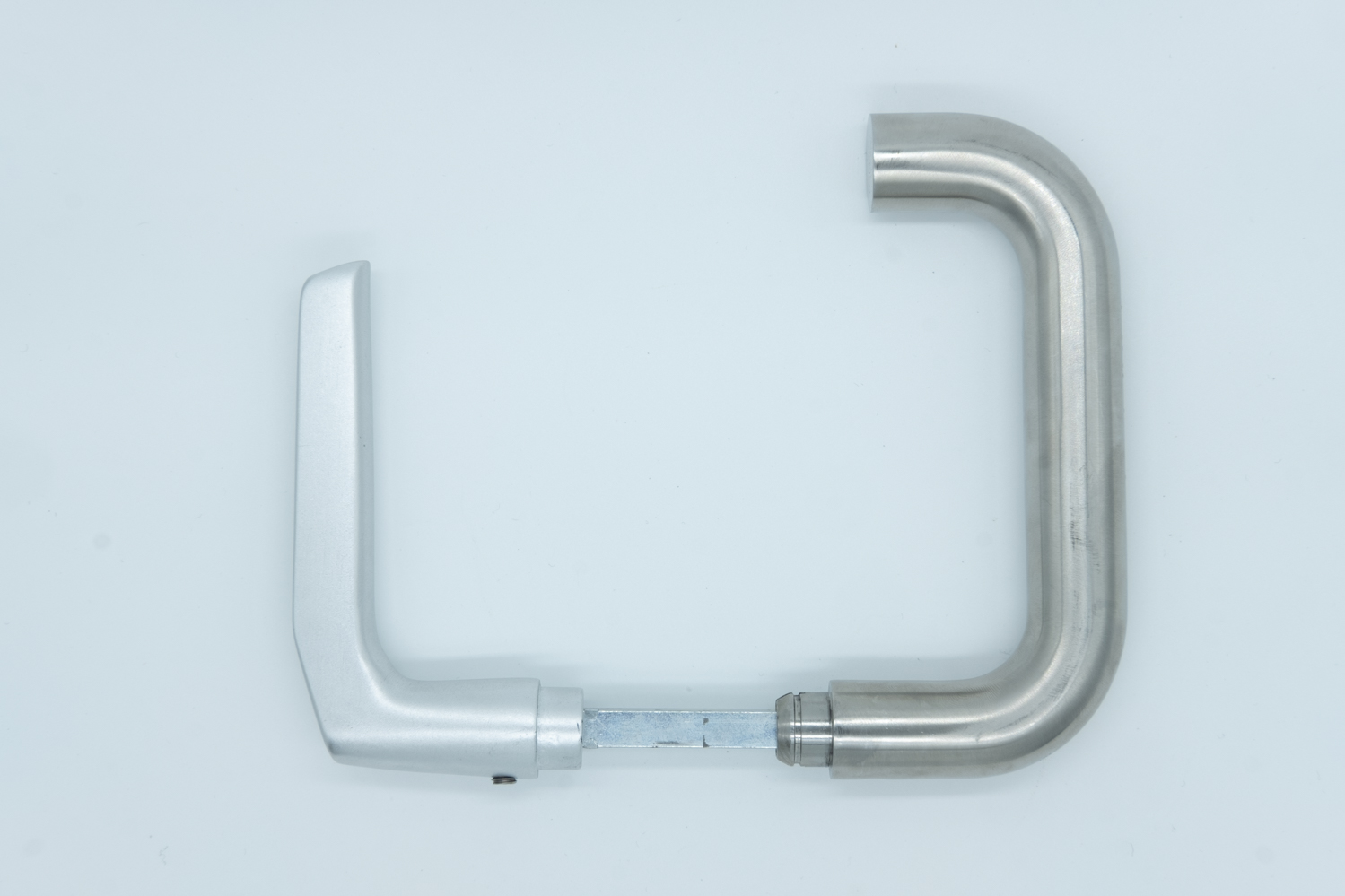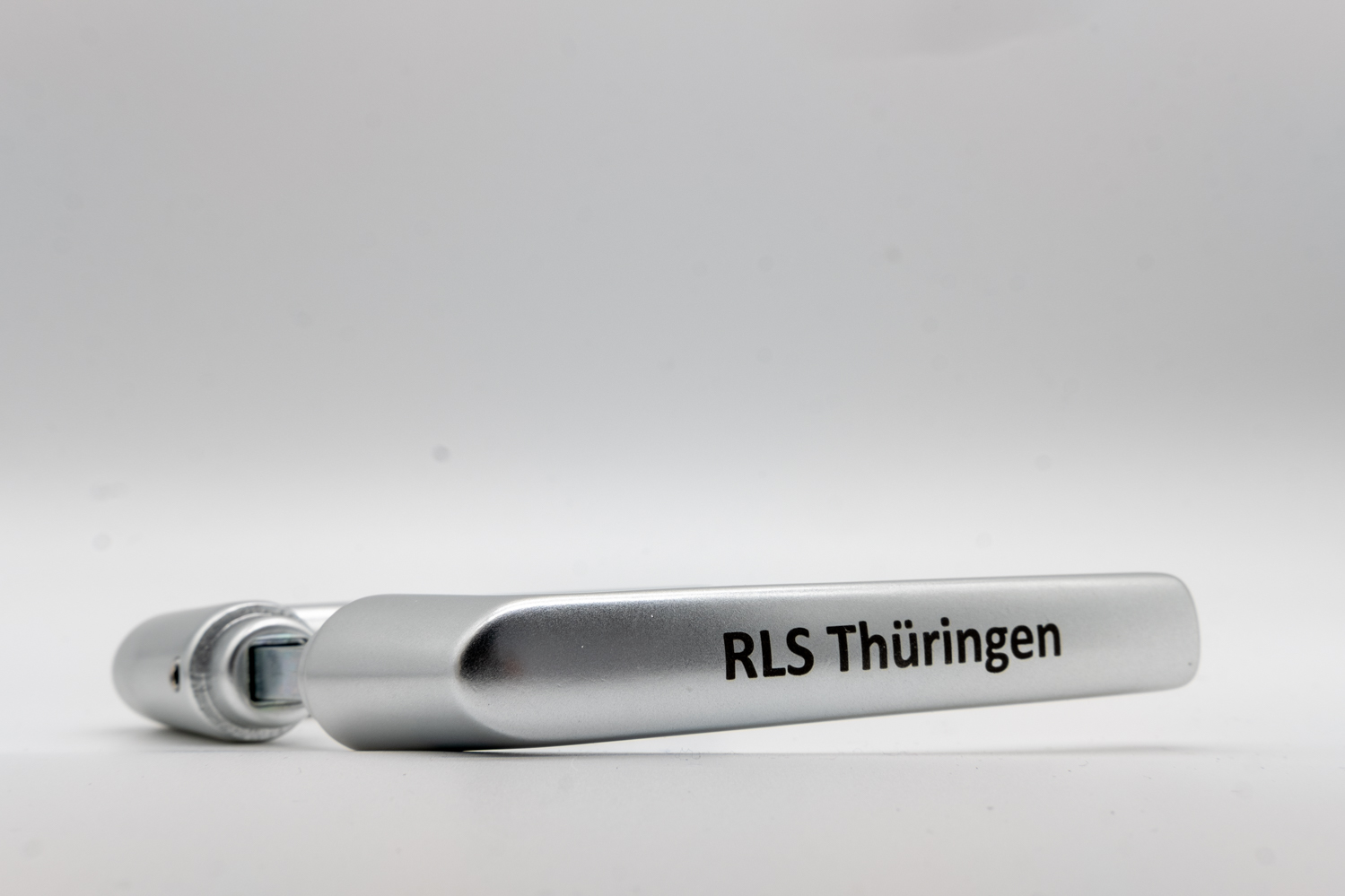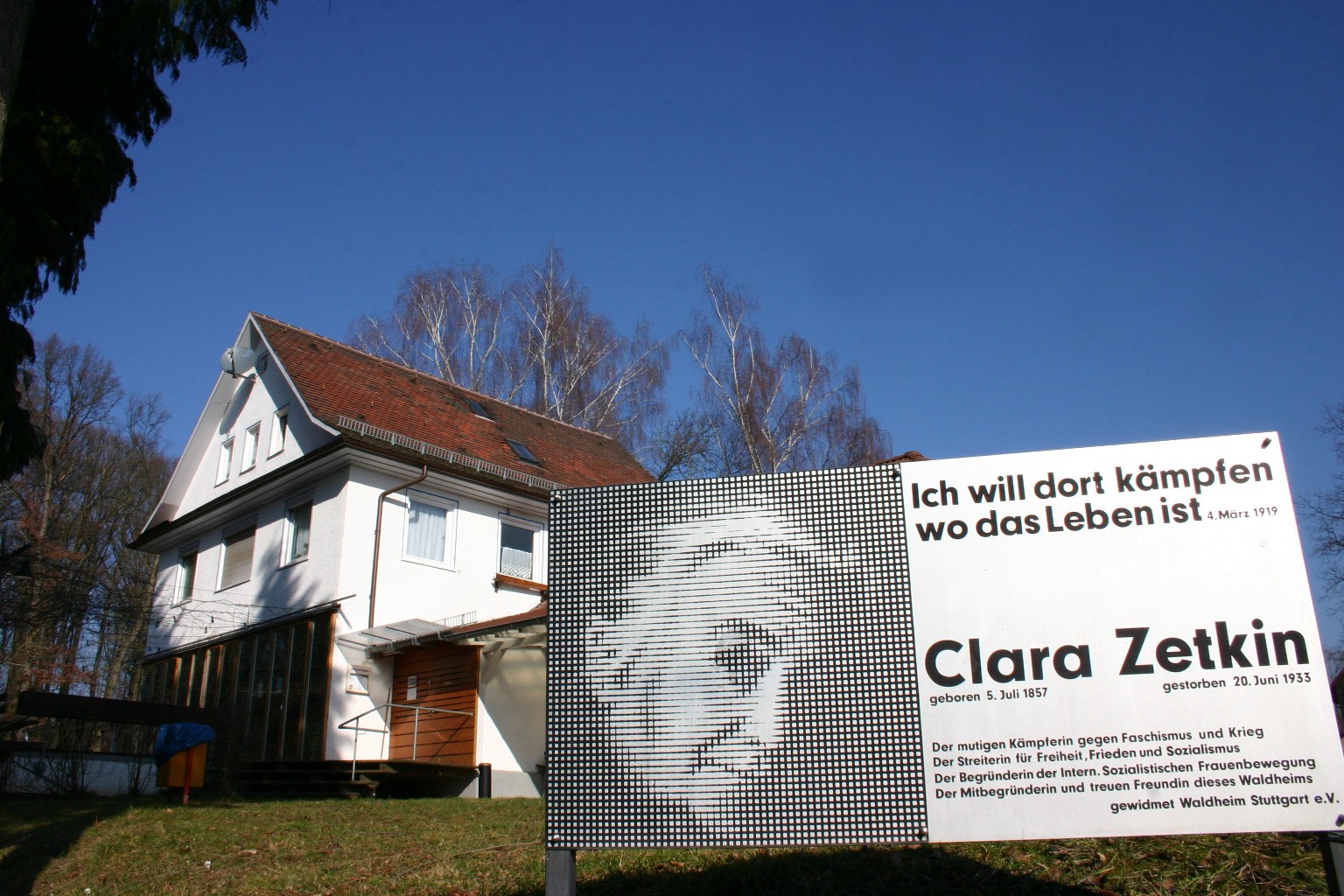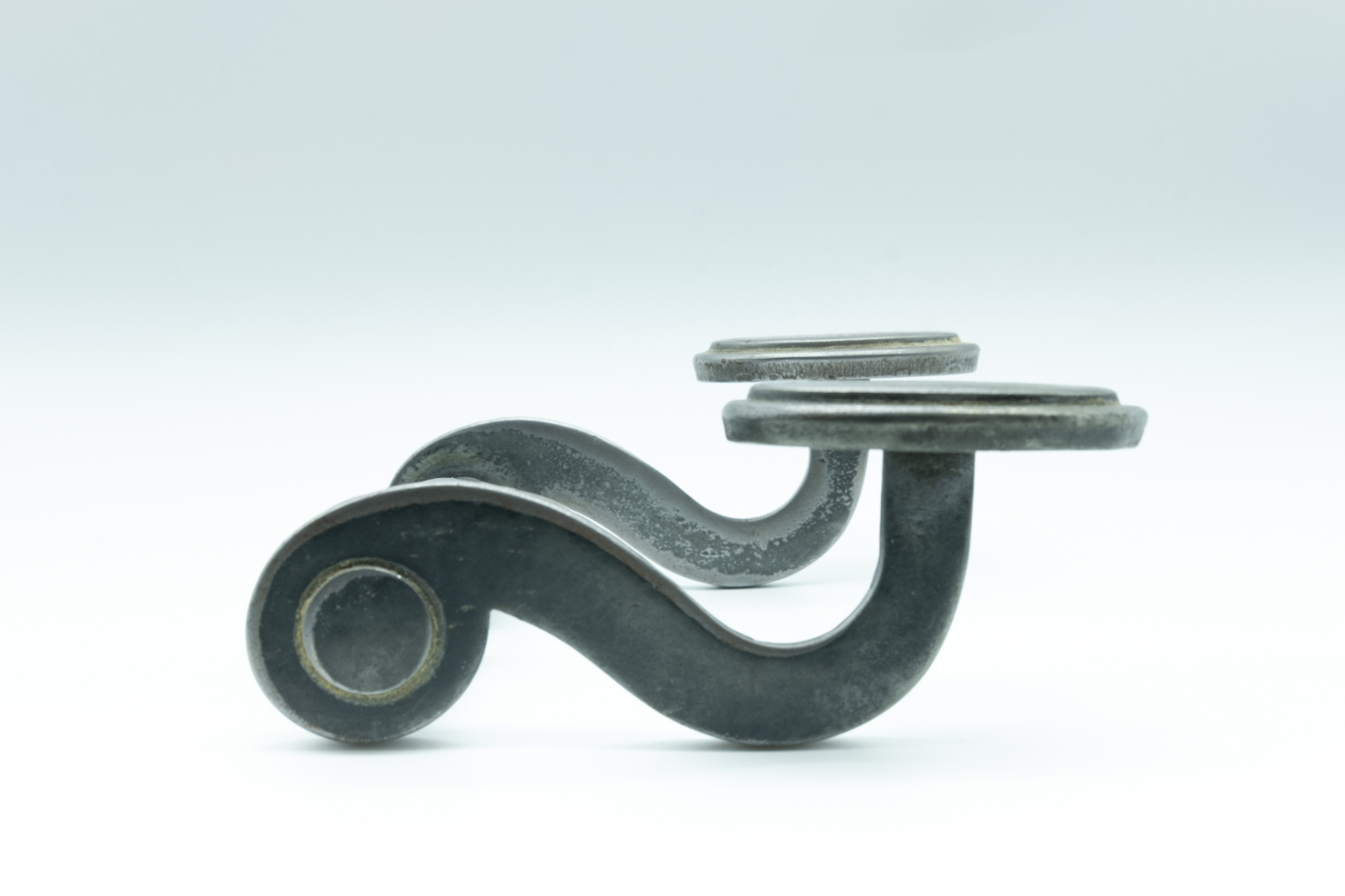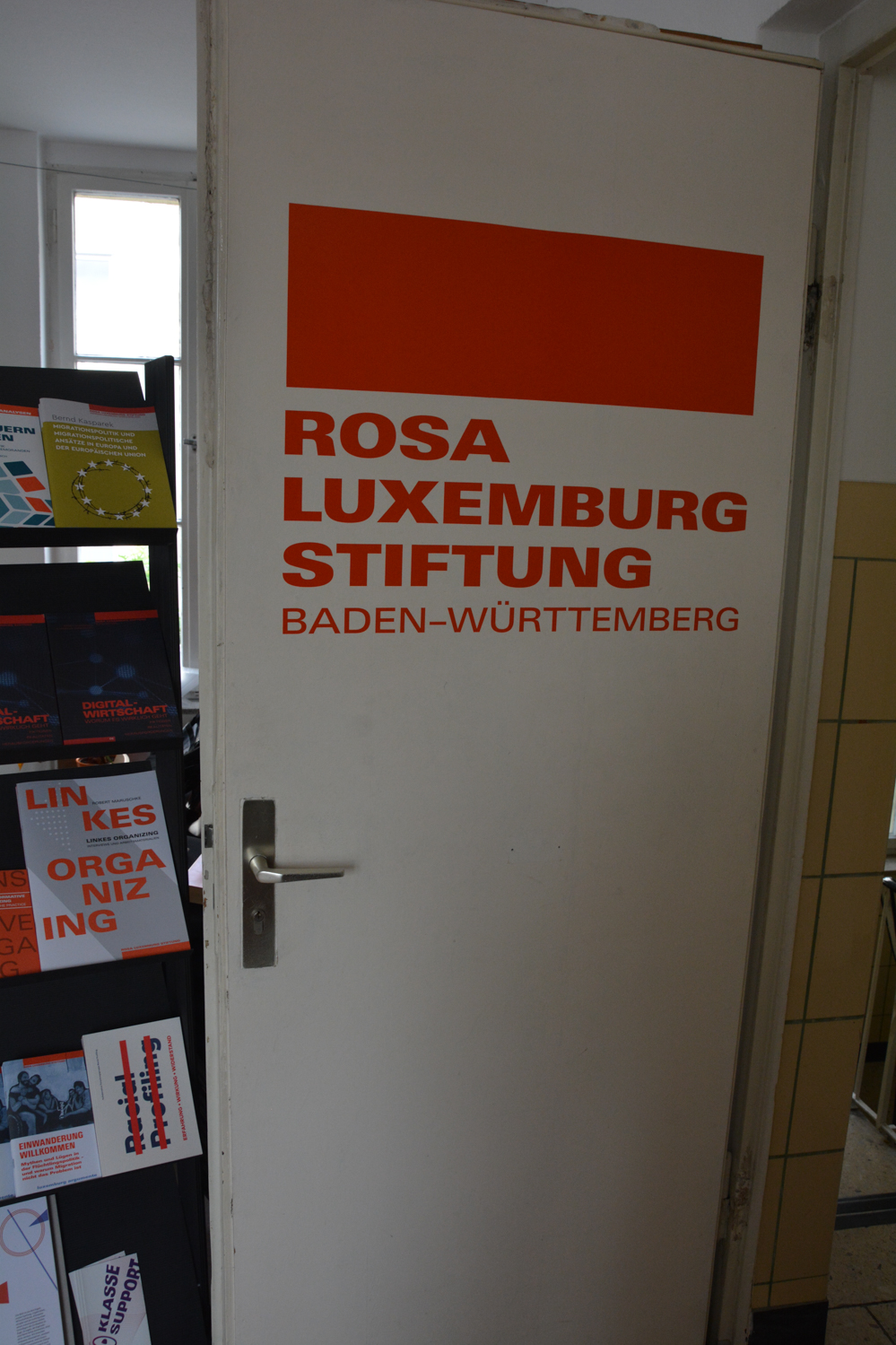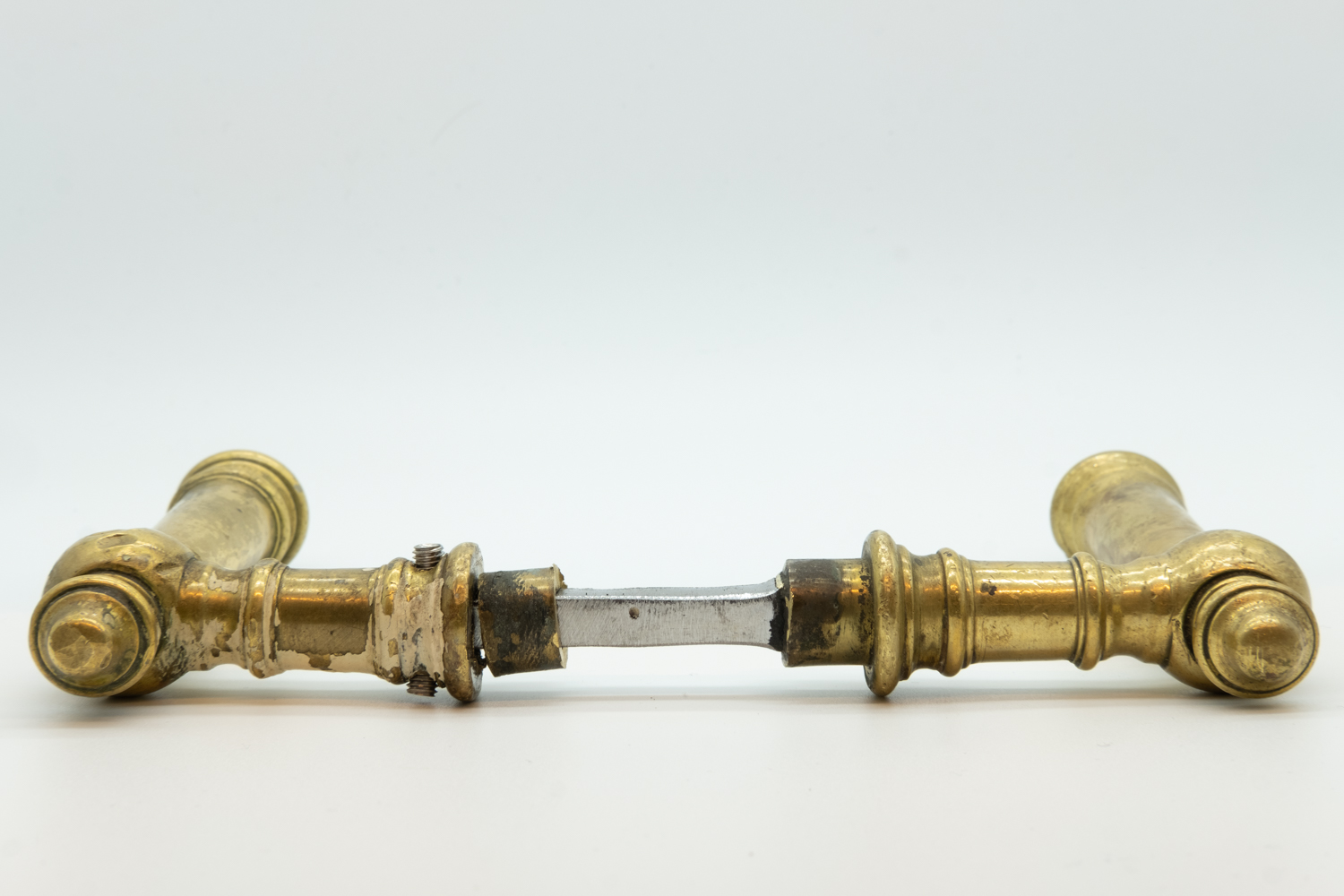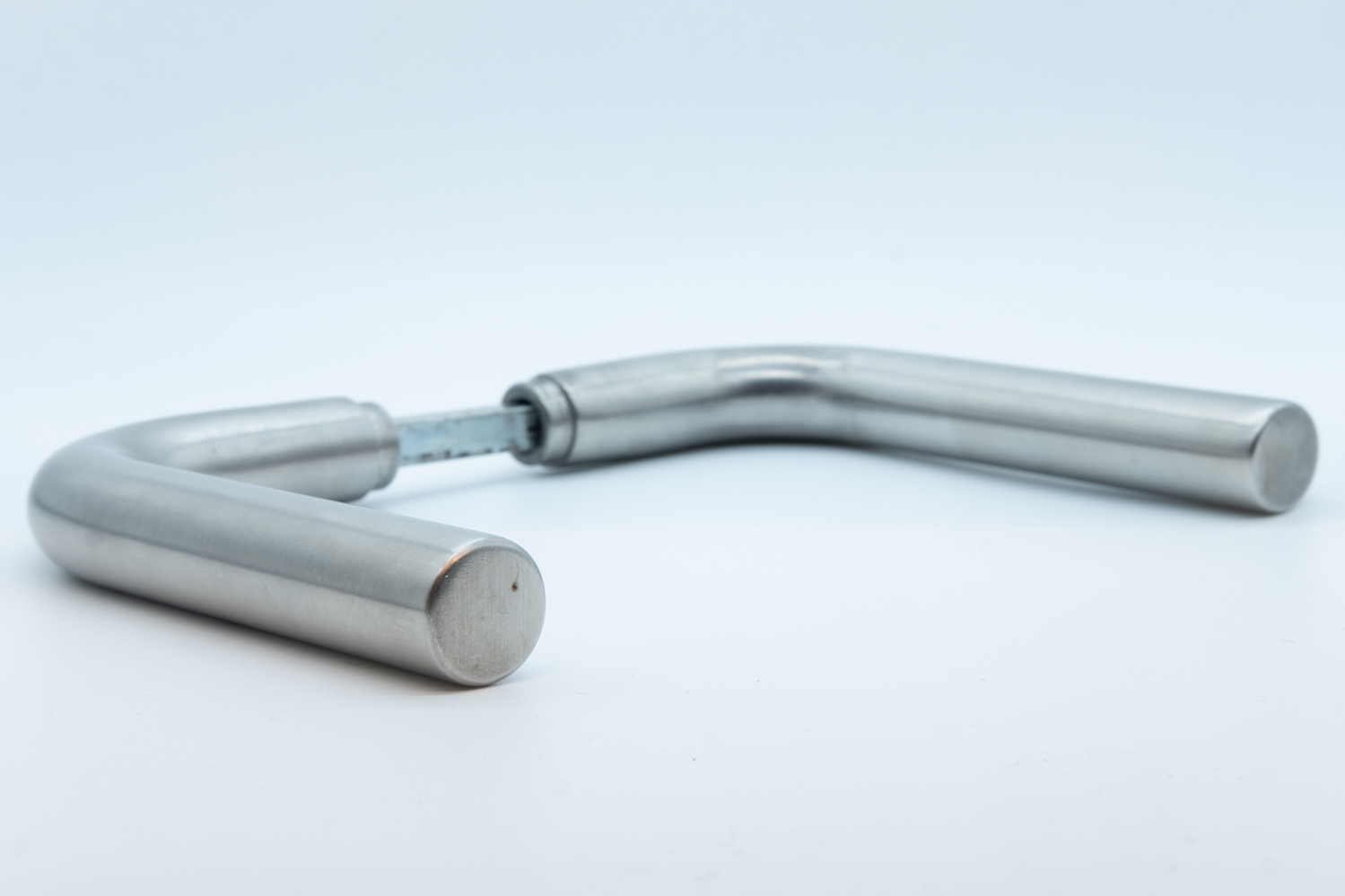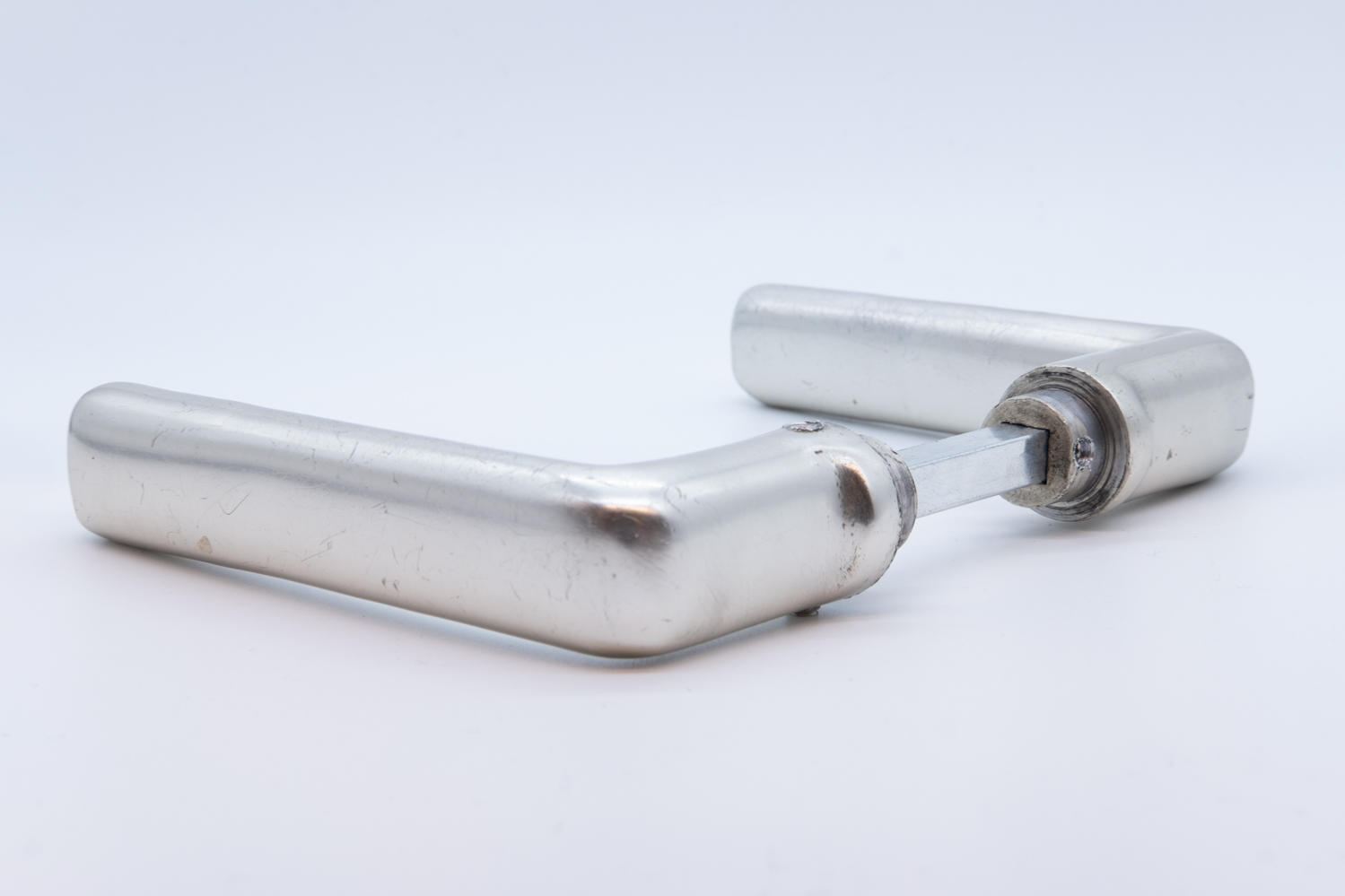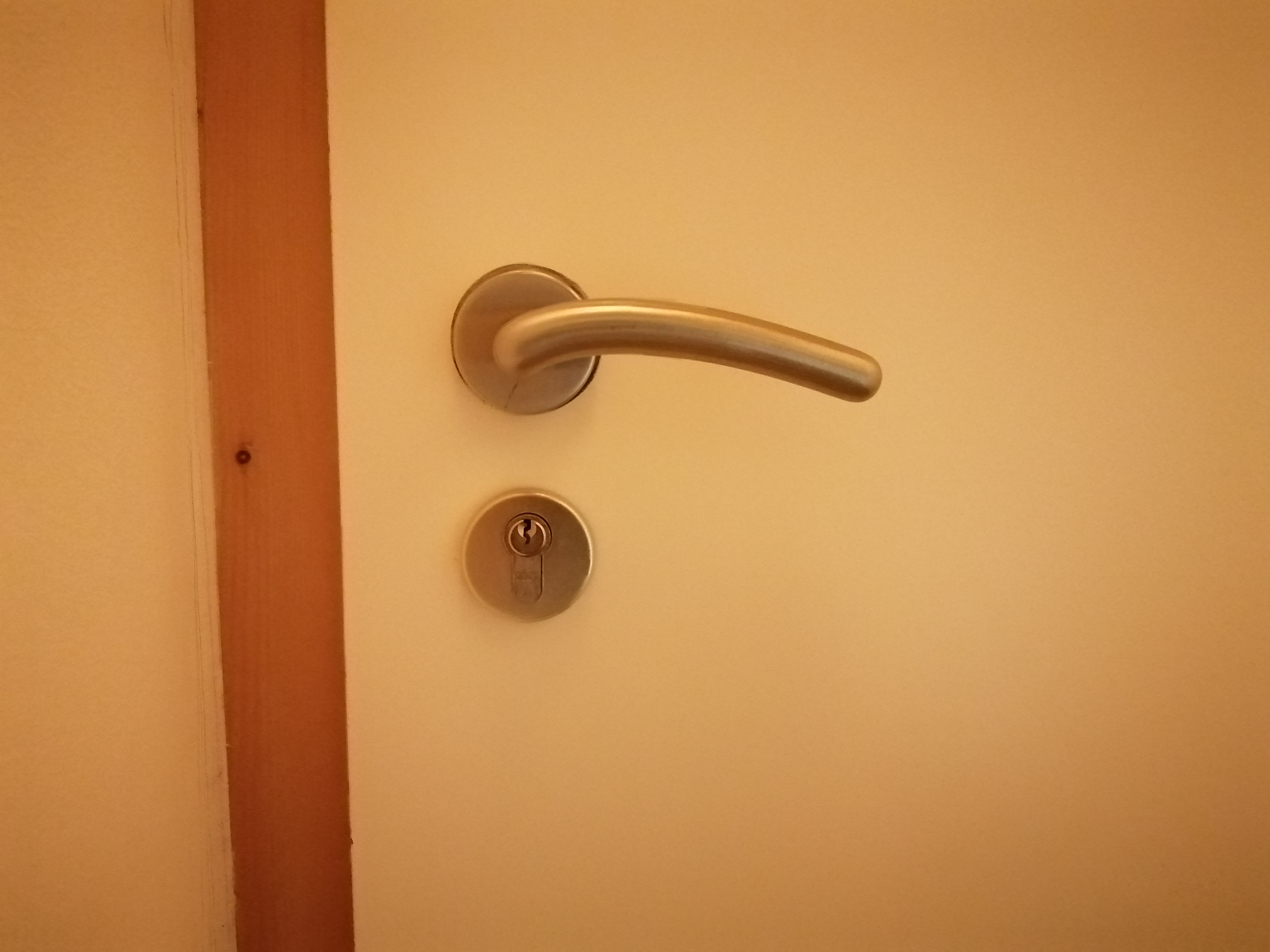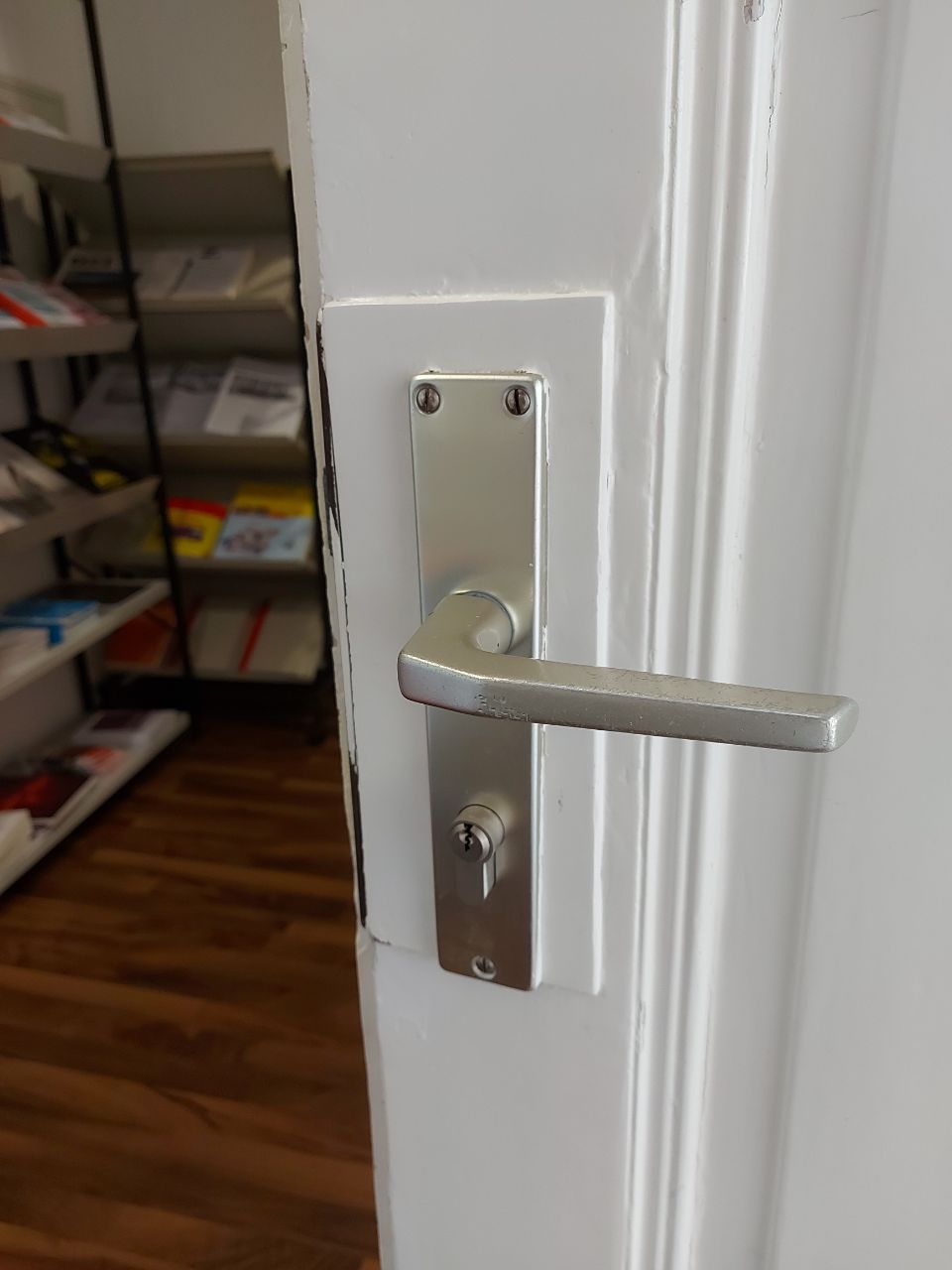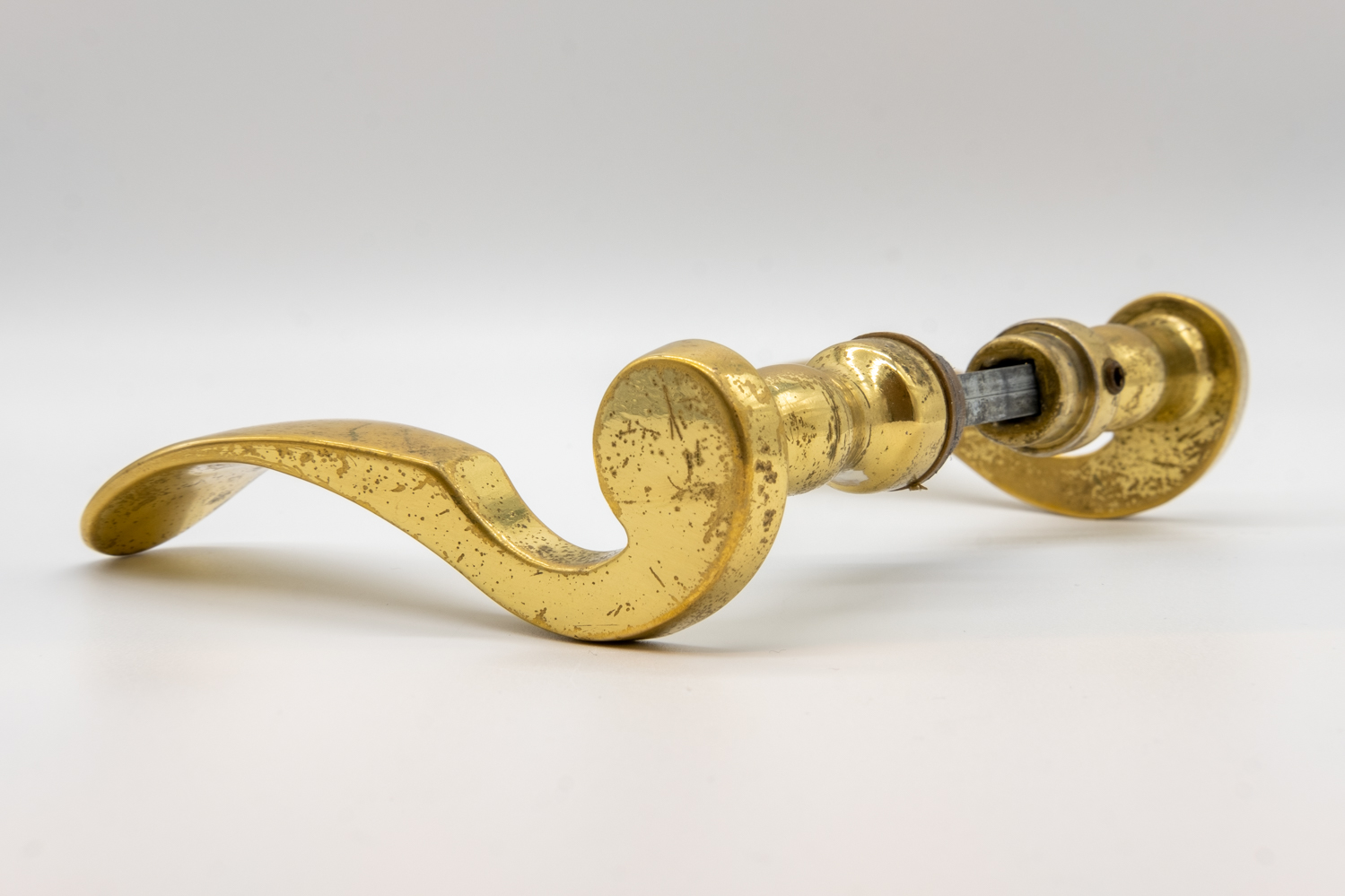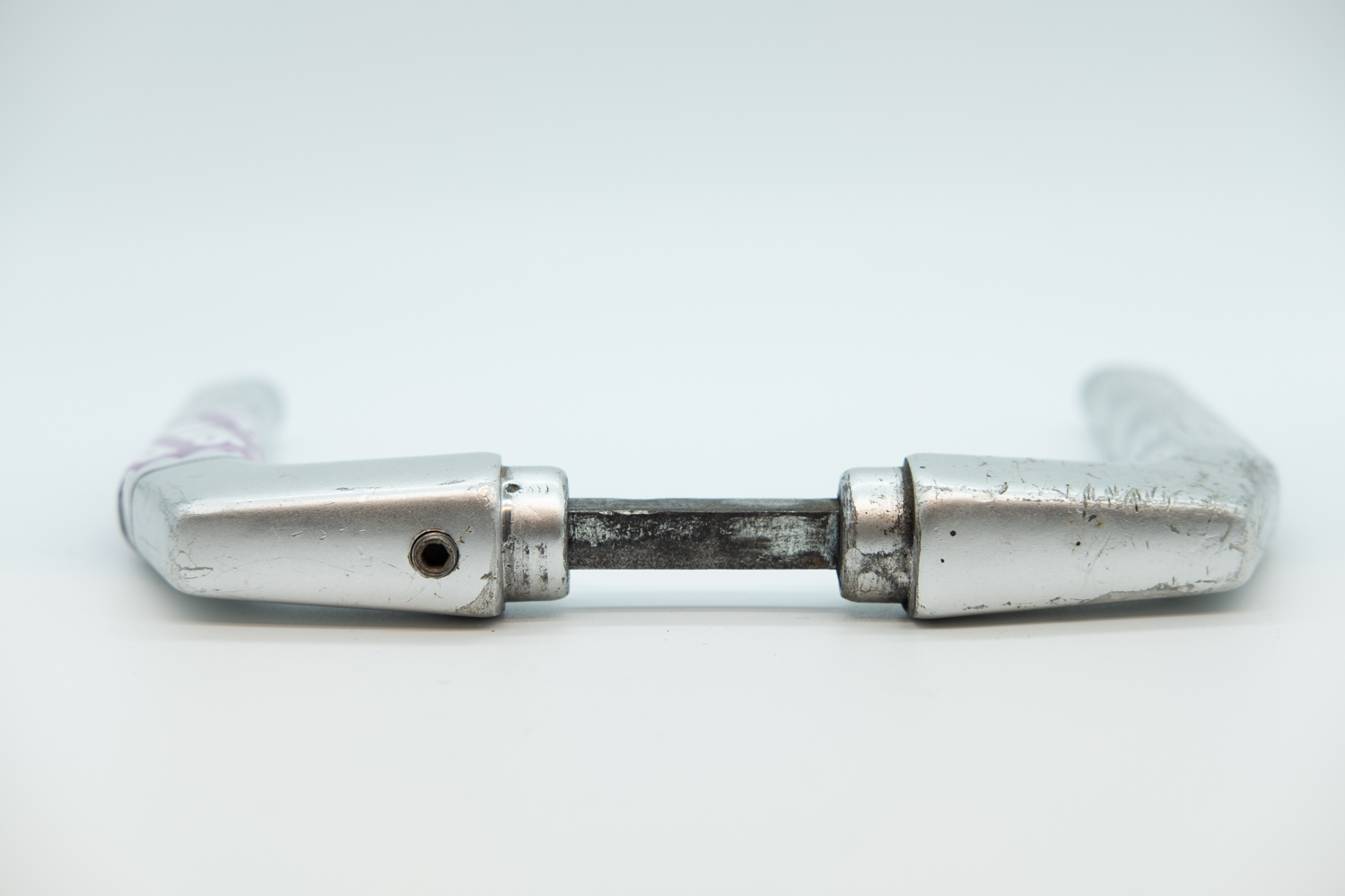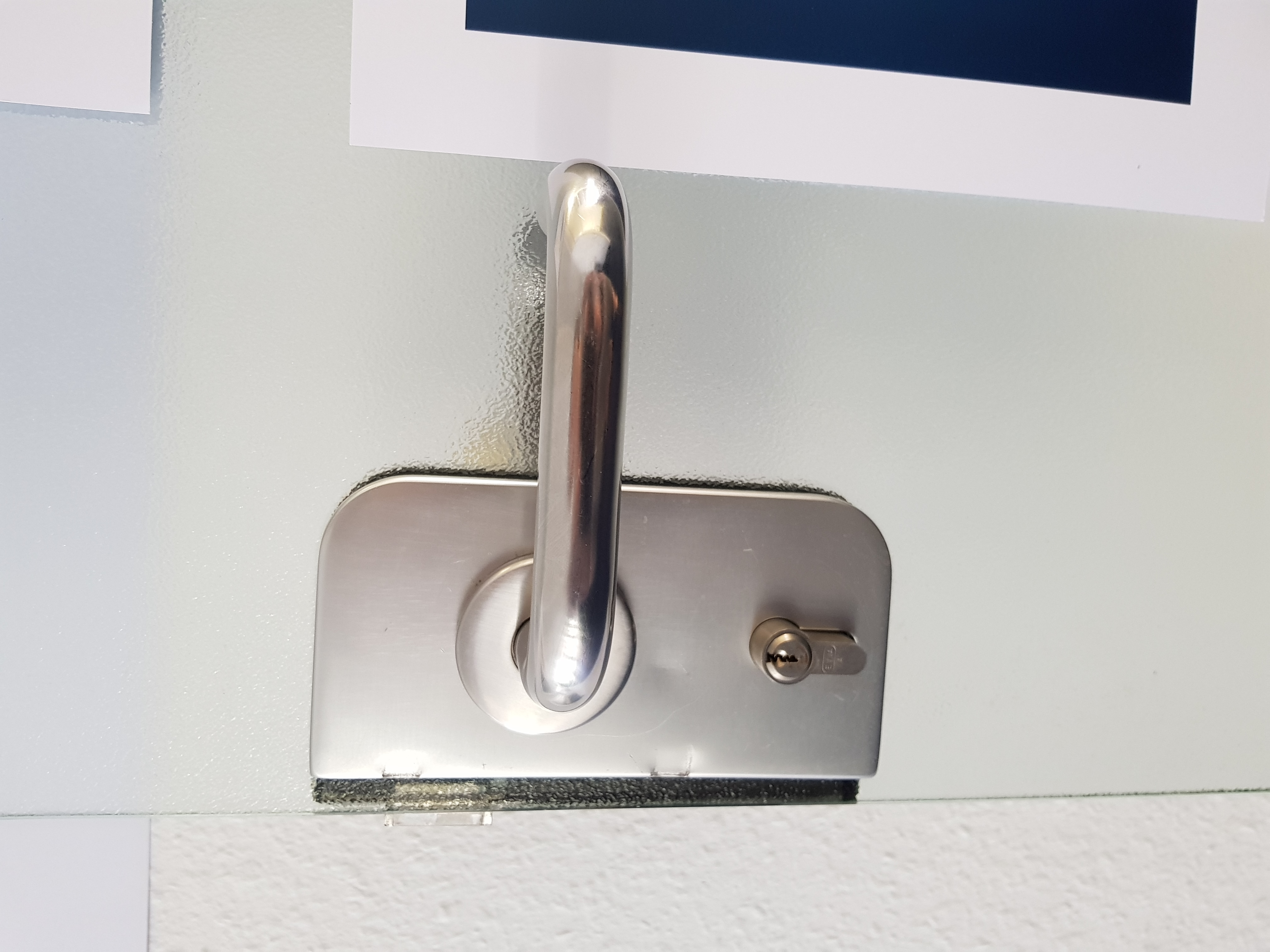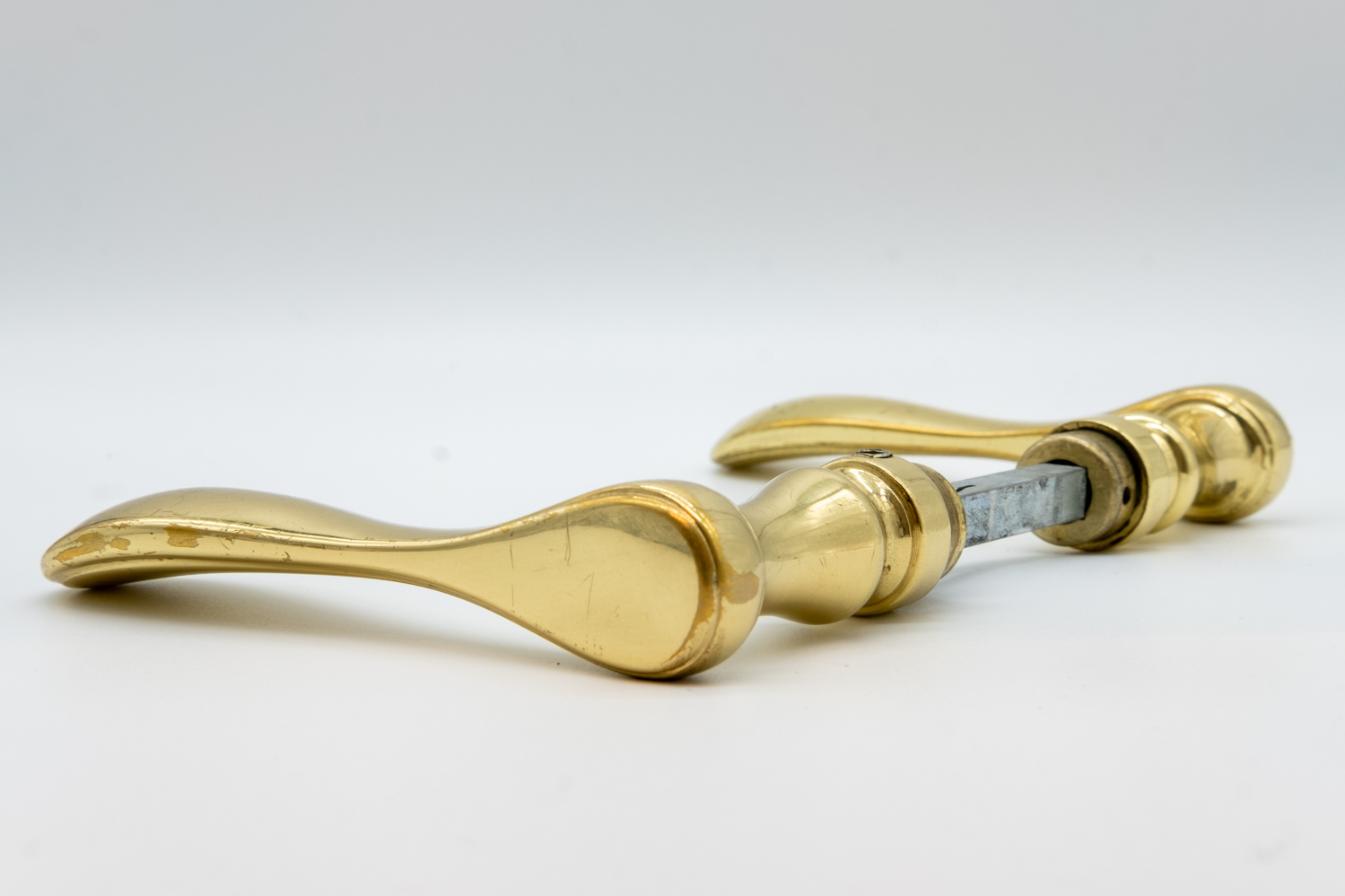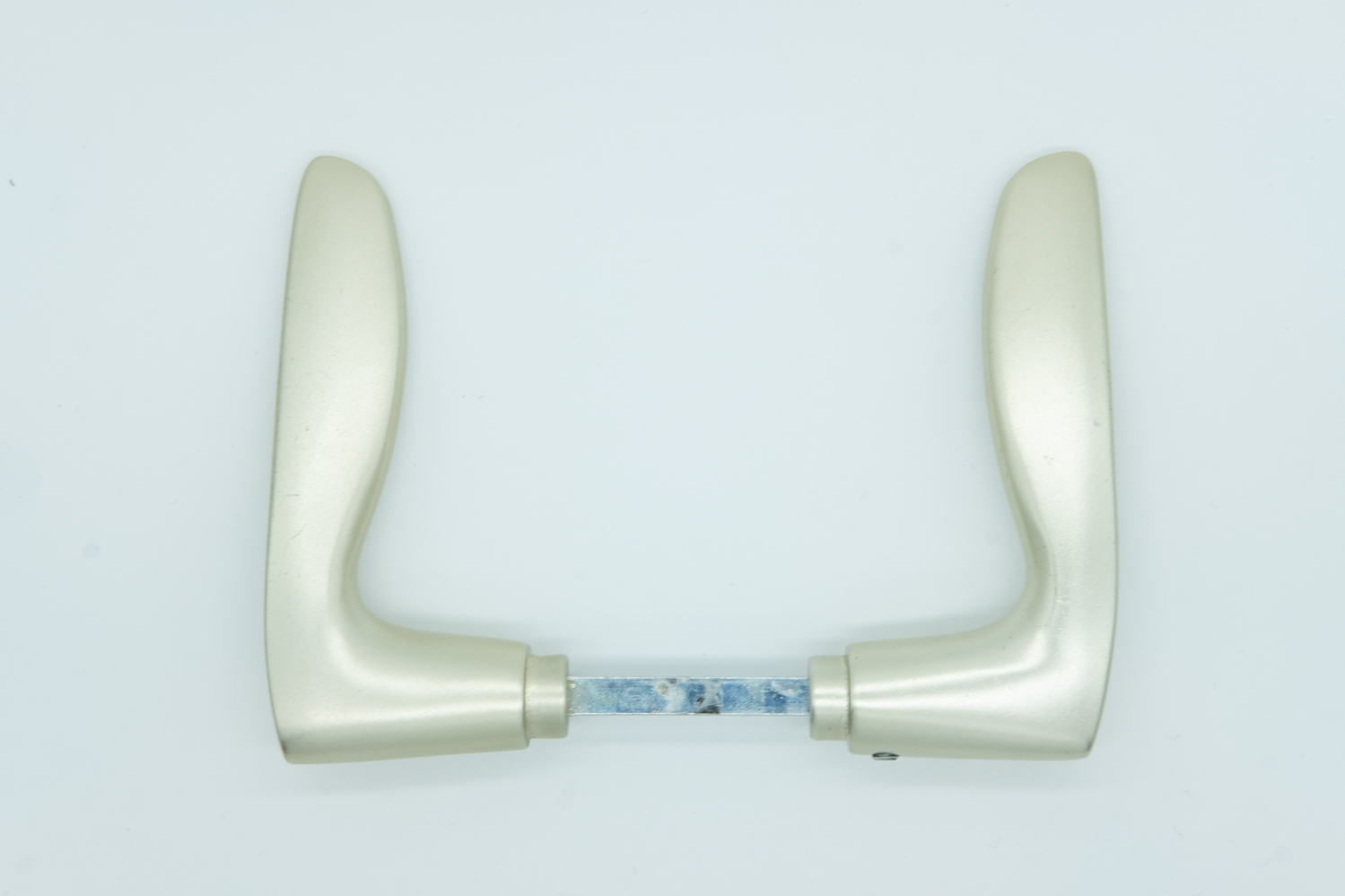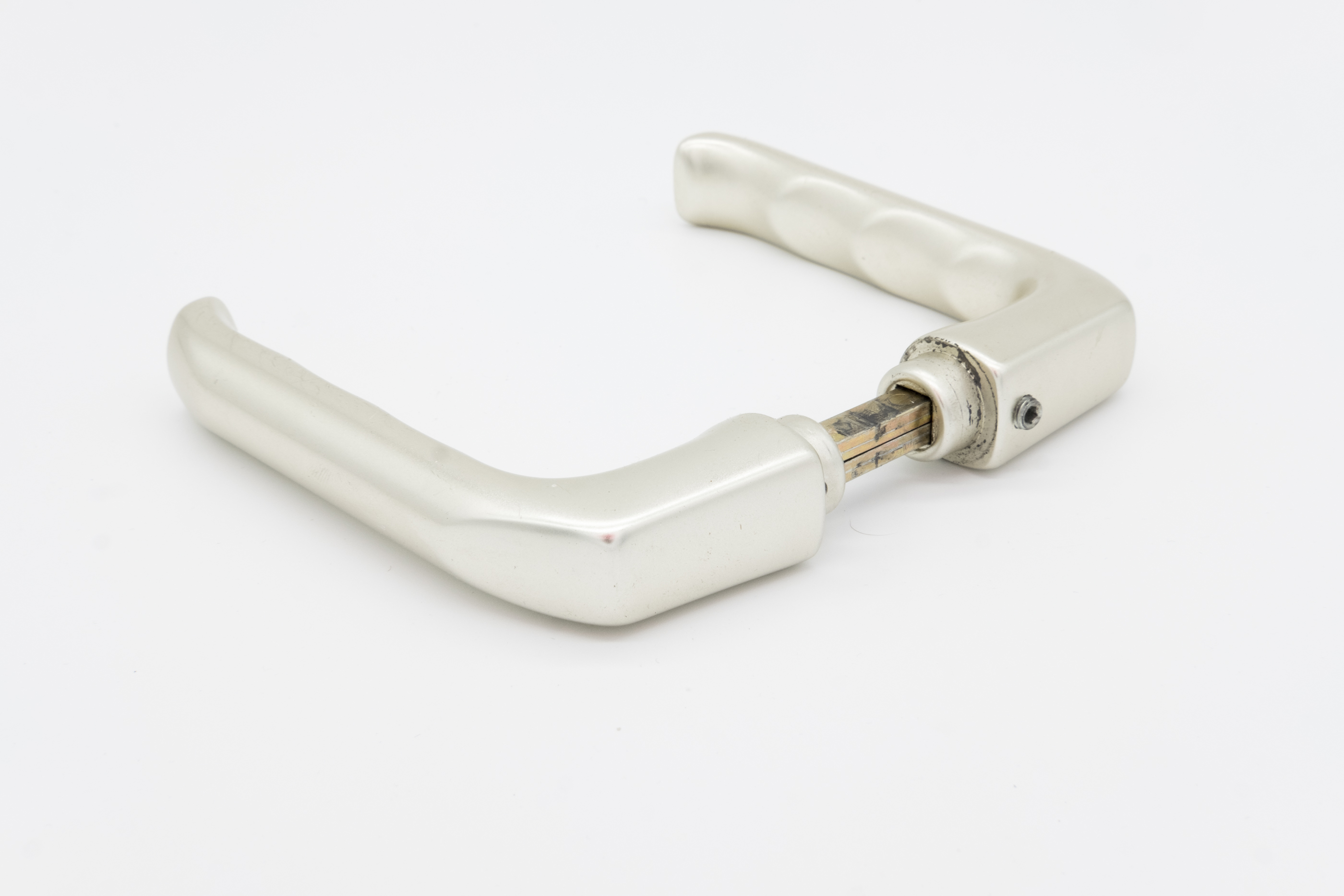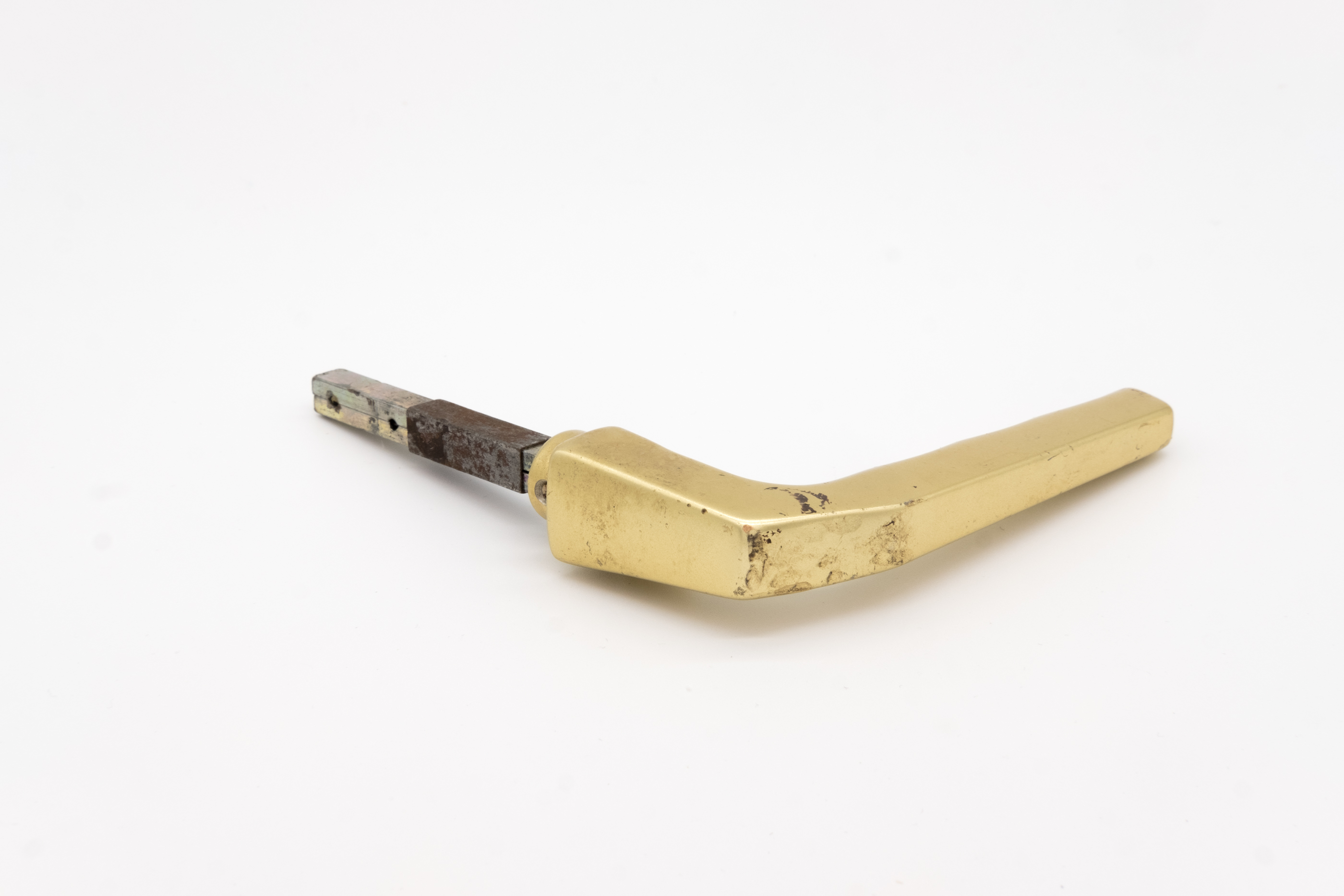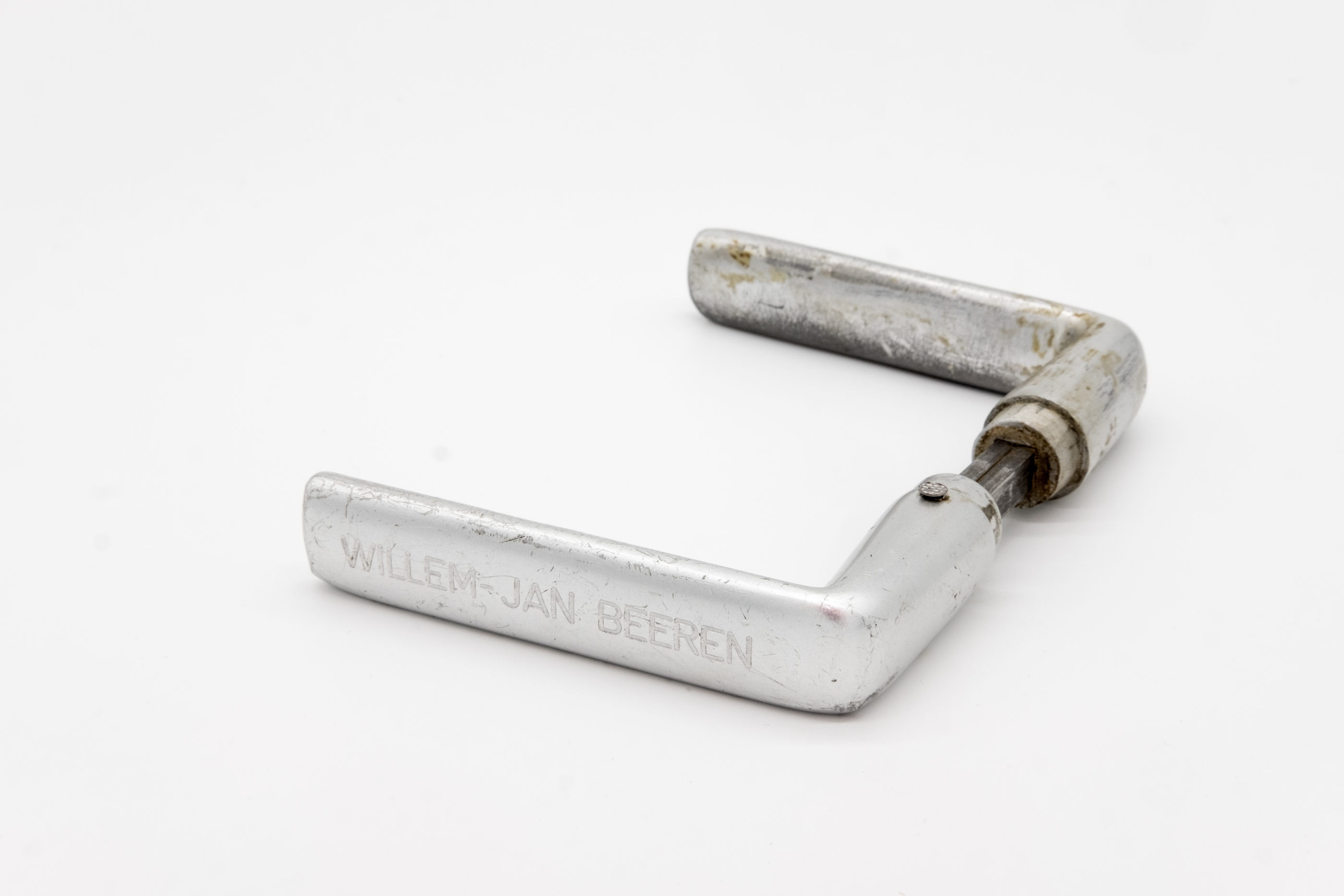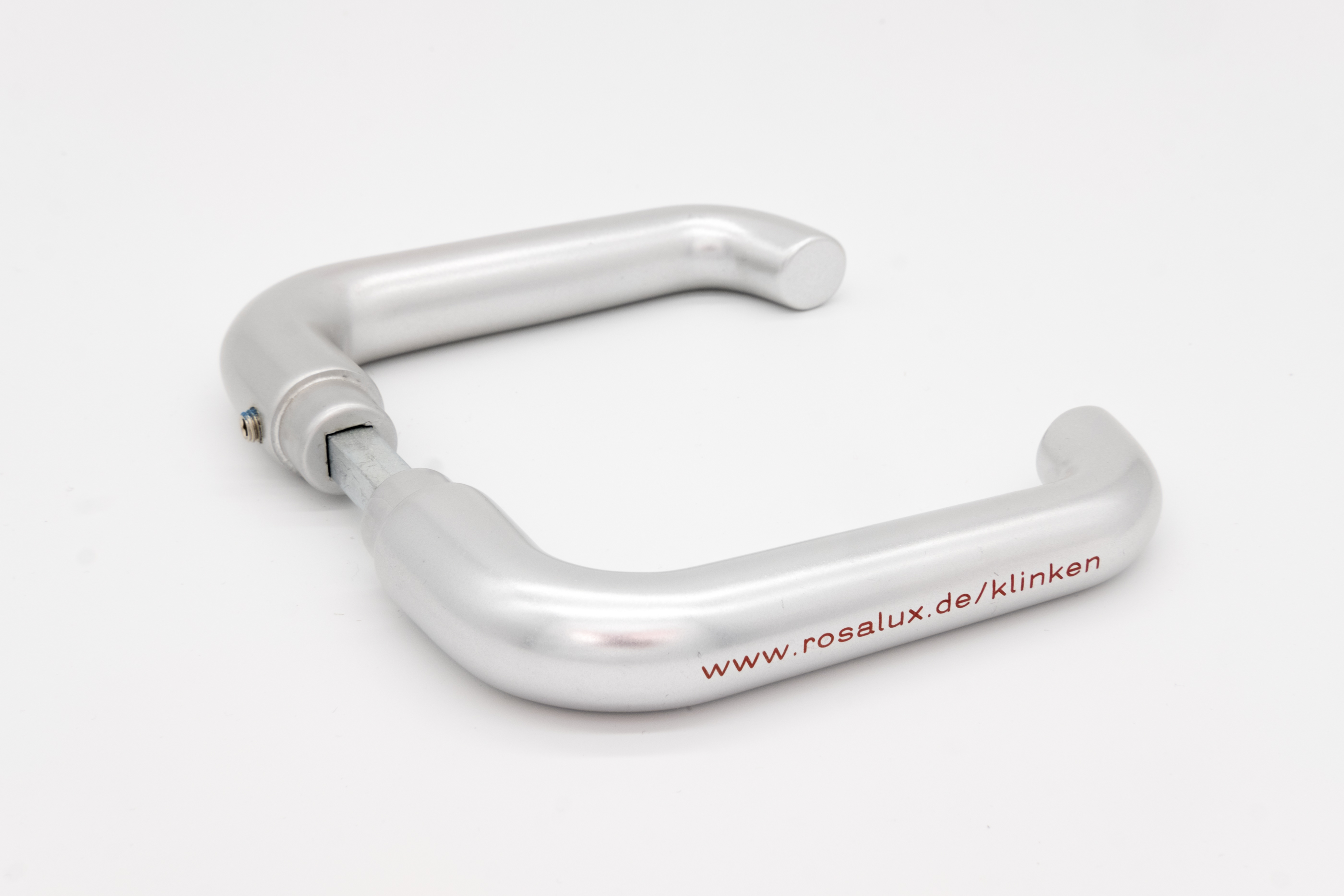The handle is located at the door to the Foundation's office, which is located in the former private rooms (bedroom and dressing room) of Max Samuel and his wife Bertha. Built in 1912, Max Samuel bought the villa in the wealthy Rostock Steintorvorstadt in 1921. The factory owner - he invented the rubber brush for suede shoes and had orthopaedic footwear made - was elected chairman of the Israelite Community, the largest in Mecklenburg, two years later. Until his flight to England in 1937, Max Samuel welcomed liberal politicians, socially committed people, entrepreneurs, publishers, and Rostockers interested in art and culture to his home. From 1933 on, he supported community members financially and helped them to flee abroad - he arranged guarantors and helped them find work. Max Samuel, born in 1883, died in 1942 with his son Herbert and his wife in English exile in Blackburn near Manchester.
The villa was expropriated, and in 1939 the German Reich gave it to the "Kaiser Wilhelm Institute for Animal and Plant Research". In 1945 it passed into municipal ownership and the Kulturbund moved in. Between 1955 and 1991 the house was used as a crèche. The youngest children were cared for in the rooms that were now used as offices.
After the house was restituted to Max Samuel's heirs, Herbert Samuel donated the house and land to the city of Rostock. The foundation was set up with the task of "actively promoting tolerance in the interaction between people of different religions, nationalities, world views and ways of life". Herbert Samuel asked to call the house "Max Samuel House" in memory of his father.
Since then, the Foundation's office has moved frequently in the house and other tenants have used the present offices and the door handle: the Protestant Academy, the Central Welfare Office for Jews in Germany, the new Jewish Community founded in 1994, the editorial office of the homeless newspaper "Strohhalm". The door handle probably dates from the 1990s, so it is not "antique". Nevertheless, it would have a lot to tell if it could.
The most important task of the foundation is to impart knowledge about Jewish history and culture in order to effectively combat anti-Semitism and intolerance. A further focus is placed on the work with children and young people. We organize readings, concerts, lectures, but also thematic exhibitions, e.g. about almost forgotten Jewish personalities from Mecklenburg-Vorpommern.
For those interested, there is a library with a special focus on Jewish history, which is open to the public. 14 in-house publications on various topics have been published so far.
